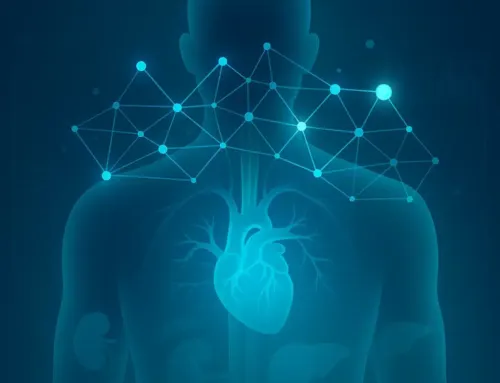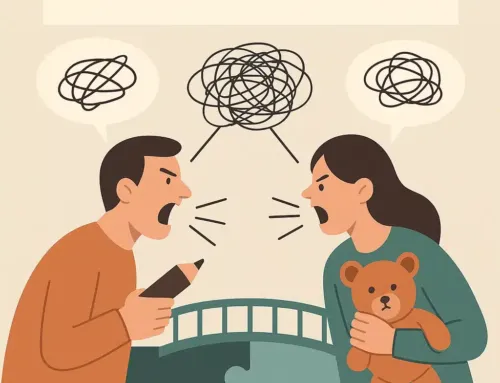
Approx. read time: 6.1 min.
Post: How Your Personality Shapes Your Genetic Destiny: The Mind-Gene Connection
How Your Personality Shapes Your Genetic Destiny: A Deep Dive into the Mind-Gene Connection
In the quest to understand what makes us who we are, science has long examined the roles of nature (our genes) and nurture (our environment). But emerging research blurs these lines, revealing that personality—once considered a fixed psychological trait—can influence the very genetic makeup we inherit. A groundbreaking international study led by the University of Granada (UGR), using artificial intelligence and decades of data from the Young Finns Study, has shown that our personalities don’t just shape our behaviors. They can also shape the way our genes express themselves, potentially altering our physical health and longevity.
This powerful revelation opens new doors into how our emotional landscape and level of self-awareness could directly interact with gene expression, rewriting the script of our health outcomes and aging process. This article takes a deep dive into this transformative study and its implications.
The Landmark Study: Data, AI, and the Young Finns Study
The foundation of this discovery lies in the Young Finns Study, a longitudinal research project started in 1980 that tracks over 3,500 Finnish participants across their lifespan. The study uniquely combines psychological profiling, clinical health records, and now, advanced AI-driven genomic analysis.
Researchers focused on 459 participants who completed the Temperament and Character Inventory (TCI) and provided blood samples for gene expression profiling. Leveraging AI and machine learning, scientists analyzed over 44,000 genes to identify those correlated with specific personality traits.
Two Major Findings:
- A Modular Gene Network: A tightly connected network of roughly 4,000 genes in the brain appears to adjust its expression based on personality traits. This network is most active in brain regions tied to emotional processing and self-reflection, such as the prefrontal cortex and limbic system.
- A Central Hub of Six Genes: Six evolutionarily conserved genes serve as control centers. These genes regulate how the brain interprets emotional and meaningful experiences, suggesting that personality traits like self-awareness and creativity can influence health outcomes by modulating this expression hub.
“This is the first time we’ve been able to demonstrate, on such a large scale, how personality traits can have a measurable impact on genetic expression,” said Dr. Cloninger, co-author and psychiatric geneticist. (Source: UGR News)
The Three Personality Archetypes and Their Health Profiles
The study categorizes people into three overarching personality profiles:
1. Unregulated Individuals
- Characterized by low self-awareness, impulsivity, and emotional reactivity.
- Associated with irregular habits and chronic stress.
- Gene expression shows heightened inflammatory response and stress-related biomarkers.
2. Organized Individuals
- Display self-discipline and social responsibility.
- Engage in healthy routines and goal-driven behavior.
- Gene expression promotes cellular repair and immune balance.
3. Creative Individuals
- High in self-transcendence, openness, and harmony with others.
- Embrace change and adapt habits constructively.
- Gene expression shifts towards anti-inflammatory markers and enhanced neuroplasticity.
According to the study, individuals in the Creative category displayed the healthiest biomarkers and lowest disease prevalence. Their genes responded most favorably to mental and emotional inputs.
The Science Behind Personality-Driven Gene Expression
Gene expression is the process through which information in a gene is used to synthesize functional gene products like proteins. These proteins carry out most of the work in cells. Gene expression can be influenced by various factors, including environment, diet, stress, and now, it seems, personality.
Key Mechanisms:
- Neuroendocrine Interactions: Personality traits influence the hypothalamic-pituitary-adrenal (HPA) axis, which regulates stress hormones like cortisol. These hormones can activate or silence genes related to inflammation and immunity.
- Epigenetic Modifications: Traits like self-regulation or chronic anxiety may alter DNA methylation patterns—chemical tags that switch genes on or off.
- Neural Circuitry Plasticity: Creative individuals demonstrate higher activity in the default mode network (DMN), which enhances neuroplasticity and adaptive gene expression.
(Source: PubMed Central)
Implications for Mental Health, Longevity, and Preventive Medicine
These findings revolutionize our understanding of preventive medicine. By fostering self-awareness and cultivating specific personality traits, individuals may positively affect their physical health outcomes.
Potential Applications:
- Mental Health Therapy: Incorporating personality profiling into treatment plans can tailor interventions.
- Personalized Medicine: Genetic predispositions could be re-evaluated in light of personality-driven gene expression.
- Public Health Campaigns: Promoting creative thinking and self-awareness may become a public health priority.
Life Expectancy
Studies have consistently shown that conscientiousness and optimism are linked to longer lifespans. The UGR-led study adds another layer: they also influence gene behavior that directly affects inflammation, cellular aging, and disease resistance.
Breaking the Mind-Body Dichotomy
For centuries, science treated the mind and body as separate entities. This study reinforces a holistic view of health, where the mind is not just connected to the body but can actually reprogram its biological functions.
Example:
A creative individual dealing with life stress may produce more serotonin and dopamine due to active self-reflection and social bonding. These neurochemicals then trigger anti-inflammatory gene expression patterns, reducing the risk of chronic diseases.
A Blueprint for Action: Cultivating Genetic Health Through Personality
You can influence your genetic destiny through conscious changes in mindset, behavior, and personality development. Here’s how:
1. Practice Self-Reflection
Engage in daily journaling, meditation, or cognitive behavioral therapy (CBT) to build self-awareness.
2. Embrace Creativity
Pursue hobbies that encourage exploration—music, art, writing. These have been shown to enhance brain connectivity and promote beneficial gene expression.
3. Foster Social Harmony
Strong relationships and empathy not only improve mental health but also regulate stress hormones that impact gene expression.
4. Adopt a Growth Mindset
View challenges as opportunities. This shift reduces cortisol levels and fosters gene expression profiles associated with longevity and resilience.
(Source: ScienceDaily)
Conclusion: The Mind as a Genetic Architect
The age-old debate of nature vs. nurture is being rewritten. The integration of personality psychology with genomics reveals that the mind is not just a passive observer of health but an active architect. Our thoughts, habits, and self-concepts send biochemical signals that can activate healing or harm.
As we move forward in the age of precision medicine and AI-enhanced diagnostics, one thing becomes clear: your personality is more than a social veneer. It’s a biological force, shaping your genetic fate from the inside out.
Understanding this connection empowers us to take control of our health narratives. It tells us that well-being is not just in our genes but also in our choices, our mindset, and our capacity for growth.
Sources
- University of Granada. “Artificial intelligence reveals how personality influences gene expression.” https://www.ugr.es/en/about/news/ai-show-how-personality-influences-expression-our-genes
- PubMed Central. “Gene expression networks regulated by human personality.” https://www.ncbi.nlm.nih.gov/pmc/articles/PMC11408262/
- Earth.com. “Personality has a profound influence on gene expression.” https://www.earth.com/news/personality-has-a-profound-influence-on-gene-expression/
- ScienceDaily. “How personality and creativity influence our biology.” https://www.sciencedaily.com/releases/2024/04/240401142515.htm
Related Videos:
Related Posts:
How Lifestyle and Environment Impact Your Genes
Why Denying Children Their Individual Identity Hurts Their Mental and Emotional Growth
The True Meaning Behind “To Know Thyself” in Fitness, Education, Health, and Diet
Seeing Beyond Sight: A Journey into My Personality, Morals, and Virtues
Understanding Personality Traits That Raise Red Flags in Relationships
Your DNA isn’t Destiny: How Lifestyle Choices can Extend your Life
Crafting Destiny: The Power of Personal Agency in Shaping Fate
Learn RE – Regular Expressions in Python
Hackers breached 3 US antivirus companies, researchers reveal









